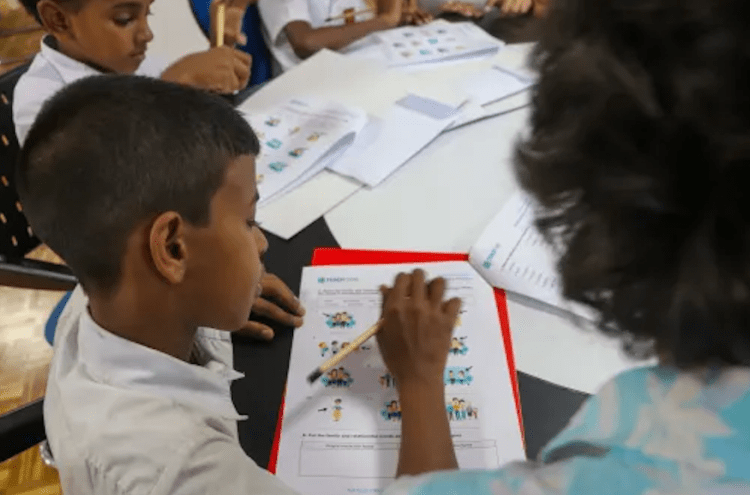As a service group, Room to Read concerns itself with the global issue of lack of literacy in the world but primarily in Sri Lanka. Through our initiatives, we hope to bridge the literacy gap present and create a positive impact on the youth in the community.
One of our latest initiatives has been our English teaching programme. Last year, our supervisor approached us with an online English teaching programme that we wanted to implement at the school we partnered with. Though we had raised funds for the school and its development, we also felt it was important to find a more interactive and personal approach to go about the work we are doing. This is when several members of the service (including myself) suggested bringing in students from Vidyaloka School (the school we work in partnership with) to teach them using the program ourselves. Our intention and goal with beginning this initiative was to cultivate confident English speakers who understand the basics of conversation as well as expose the students to a world outside of their known environment.

This has been wildly successful over the last year, and the change in the students is evident. As the students have grown more comfortable with the people teaching them (the members of Room to Read), they have progressively also embraced the language. Though teaching conversational English has been a slow process, we are beginning to see its effects and impact, making all the work we’ve put in worthwhile. I am one of the first people to teach the students, and they have grown to like me over the past year; because of this, I have been able to watch them grow more comfortable and confident in their English speaking skills. Additionally, in our sessions, we also include 10-15 mins of playtime outside in our OSC facilities, where we play with the students to entertain and bond with them on a more personal level.

Newly, we have also included grammar and written literacy as part of our programme after seeing our success in the conversational side of things. Through this programme, I have gotten a glimpse of what it is like to be a teacher/educator, as it is up to me and my fellow service leaders to plan all the lessons, carry them out, and ensure that we are progressing in our goal every week. In order to complete this planning, all the service leaders meet every Tuesday and give up our lunch break to organise the lessons. This is a significant responsibility and has quickly grown into my primary point of focus in the service since I am most familiar with the students and what they are most receptive to.
Over this last year, through trial and error as well as research, I have found that the best and most effective way to achieve our goal and teach these students how to converse confidently in English requires us to refine all their literacy skills as they are all connected. Finding a good balance in the depth at which we teach the students, as well as basing most of our sessions around conversations between us (the teachers) and the students, are the key elements to creating a real change for the better in the students. It is vital to me that this programme is educational and enjoyable for the students because, over this time, I have grown a fondness for them, but I also realise how much they look forward to our Thursday classes and that it is up to us to make it as beneficial for them as possible.


